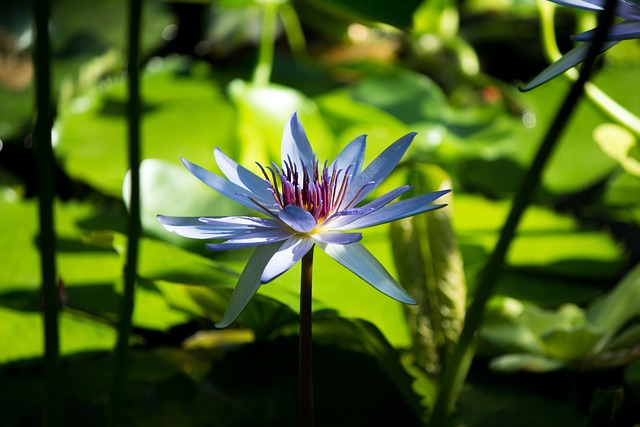Cold water immersion through practices like cold plunges or ice baths significantly boosts mental well-being by increasing endorphin release and stimulating the vagus nerve. Regular cold exposure reduces stress, anxiety, cortisol levels, and symptoms of depression while promoting relaxation and serotonin production. Incorporating short cold showers to longer immersions in temperatures around 50-60°F (10-15°C) into daily routines offers a natural, effective method for managing stress and achieving balance.
Unwind and rejuvenate with the powerful benefits of cold water immersion. This natural practice has gained traction as a game-changer in stress and anxiety management. Discover how a simple cold plunge can significantly boost your endorphin levels, offering profound mental health advantages. Explore the science behind cold therapy, from its ability to reduce stress and anxiety to its calming effects on the mind. Learn practical tips to incorporate this refreshing routine into your daily life for optimal well-being.
Understanding Endorphins and Their Role in Mental Well-being
Endorphins are natural chemicals produced by our bodies that play a pivotal role in regulating our mood and overall mental well-being. Often referred to as “feel-good” hormones, they act as a form of internal reward system, triggering sensations of pleasure and happiness. When we engage in physical activities or experience intense emotions, our brain releases endorphins, which can significantly enhance our sense of calm and reduce feelings of stress and anxiety.
In the context of cold water immersion, such as a cold plunge or ice bath, this natural release of endorphins is amplified. The shock of cold exposure triggers a cascade of physiological responses, including increased heart rate and blood flow, which in turn stimulates the production and release of endorphins. This process can lead to profound calming effects, offering an effective natural remedy for stress and anxiety relief. By embracing cold water therapy, individuals can harness the power of endorphins to promote mental health and achieve a deeper state of relaxation.
Cold Water Immersion: A Natural Way to Boost Endorphin Levels
Cold water immersion, such as a cold plunge or ice bath, has emerged as a natural and powerful way to boost endorphin levels and enhance mental health. The practice involves briefly exposing oneself to cold water, typically between 50-60°F (10-15°C), which triggers a physiological response in the body. When you immerse yourself in cold water, your nervous system responds by releasing endorphins, often referred to as “feel-good” hormones, into your bloodstream. These endorphins not only alleviate pain but also induce a sense of calm and well-being, making cold water therapy an effective tool for stress and anxiety reduction.
The calming effects of cold plunges extend beyond the immediate physical response. Research suggests that regular cold water exposure can improve mental resilience and reduce symptoms of depression. It does this by promoting a state of deep relaxation and stimulating the release of neurotransmitters like serotonin, which plays a crucial role in regulating mood. For folks dealing with stress or anxiety, incorporating cold plunges into their self-care routines can be a game-changer. By harnessing the benefits of cold water therapy for mental health, individuals can find a natural way to restore balance and achieve relaxation in today’s hustle and bustle world.
The Science Behind Cold Therapy for Stress and Anxiety Reduction
The Science Behind Cold Therapy for Stress and Anxiety Reduction
Cold therapy, particularly cold water immersion like a cold plunge or ice bath, has gained attention for its potential to significantly reduce stress and anxiety levels. When your body is exposed to cold temperatures, it triggers a cascade of physiological responses. One key effect is the release of endorphins, often referred to as “feel-good” hormones, which play a crucial role in regulating mood and reducing pain perception. Additionally, cold water therapy stimulates the vagus nerve, a key component of the parasympathetic nervous system, known for its calming effects on the body and mind.
Studies have shown that regular cold exposure can lower cortisol levels—often dubbed the “stress hormone”—and decrease symptoms associated with anxiety disorders. The cold water immersion experience creates a sense of physiological stress, but it’s this very response that leads to a subsequent feeling of relaxation and well-being once the body has adapted. This unique duality makes cold therapy an intriguing natural approach for those seeking effective strategies to combat the negative impacts of chronic stress and anxiety.
Practical Tips for Incorporating Cold Plunges into Your Routine for Mental Health
Incorporating cold plunges into your routine can be a powerful tool for managing stress and anxiety, offering significant mental health benefits. Start small by gradually immersing yourself in cold water for brief periods, such as a quick splash or dunk under the shower. Over time, you can increase the duration, aiming for 10-15 minutes in a cold bath or plunge pool. Consistency is key; regular cold exposure helps regulate your body’s stress response, reducing cortisol levels and promoting relaxation.
For optimal calming effects, consider timing your cold plunges strategically. Morning immersions can jumpstart your day with energy while evening sessions promote better sleep. Experiment with different temperatures to find what works best for you—a mild chill provides subtle benefits, while an icy dip offers intense stress relief. Always ensure safety, especially if trying a frozen lake or river; seek guidance from experienced practitioners if needed.
Cold water immersion emerges as a powerful, natural method to elevate endorphin levels and promote mental well-being. By embracing the therapeutic benefits of cold therapy, individuals can effectively manage stress and reduce anxiety. Incorporating cold plunges into daily routines allows one to harness the calming effects for sustained relaxation and improved mental health. Whether it’s a quick cold shower or a full-body cold plunge, these practices offer accessible ways to boost endorphins and cultivate a sense of tranquility in today’s fast-paced world.
